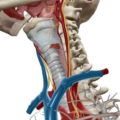From Athlete to Barely Functioning
In 2016, I walked into the doctor’s office to be looked at for a stomach bug. I was prescribed Ciprofloxacin (Cipro) 500mg and 500mg of metronidazole (Flagyl), twice a day for 14 days. Within the first couple of days taking the antibiotics, I knew something didn’t feel right, but I continued to take them as prescribed.
Another day passed and I had a massive panic/anxiety attack. It felt as if my body was shutting down and I was going to die within a few minutes. After suffering all night long, I visited the doctor again and told him that it felt as though I was dying, that something was incredibly wrong and that I had never felt this way in my entire life.
He researched the side effects/symptoms of Cipro and Flagyl and based on what he read, he told me to stop taking it and see if there was any improvement.
I made it another few days before I couldn’t handle it any longer. My side effects were so bad. Less than a week after being off the pills, I went into work and was hit with another extreme panic attack. I couldn’t breathe again. I had extreme dizziness. It was like my body was shutting down. I told a coworker that I felt as if I was dying. I couldn’t walk and I needed him to call an ambulance immediately. From that point on, my life had changed forever.
In and Out of the Emergency Room
I had to stop working and I spent the next 8 months constantly in and out the emergency room. I went to multiple hospitals, saw multiple specialists, and my GP’s several times. I had several ECGs done, CT scans, ultrasounds, an MRI, and many rounds of blood work. Everything was negative.
I became delusional/depersonalized and suffered derealization. I was completely paranoid of life and in awe of my existence. I cried every single day.
I suffered with constant anxiety, severe panic attacks. I developed neuropathy with numbness in my arms and head and neuralgia with a sense of electricity in my brain or brain zaps. I developed tremors and body shivers. I felt hopeless, experienced intense fear and agoraphobia. I experienced tunnel vision and lost my vision to some degree. I had memory problems and was unable to concentrate. My dexterity declined and I lost the ability to walk or control my body properly. I developed high blood pressure. At times, I contemplated suicide. I was afraid of dying but also afraid of living.
I was prescribed Valium, a benzodiazepine, to calm my “anxiety”, even though I never had anxiety outside of it being chemically induced. This caused even more issues and I eventually had to stop taking it, no tapering involved.
It was like a bomb went off in my body and I have never recovered.
I still suffer from the following symptoms weak and shaken muscles and twitching, neurological symptoms dizzy when walking, extreme muscle pain tightness especially neck and shoulders, constant congestion, chest pain, chronic costochondritis, pins and needles in the hands and feet, and heart flutters especially at rest.
Prior to Cipro and Flagyl, I Was An Athlete
I had just turned 40 before all this happened and was high level functioning athlete. If I rewind 3-4 months before being given the Cipro and Flagyl, I had an accident on a job site, where some metal scratched my leg. I was given an antibiotic in case of infection, the name of which I cannot remember. That antibiotic started my gut symptoms that included reflux and so I was on Nexium for approximately 3 months. Those antibiotics gave me loose bowels and reflux etc. and that is when I went to the doctor and he prescribed me the Cipro and Flagyl. Since then, I have had fecal matter transplant done, which resolved over 90% of gut issues.
My diet was pretty clean and mostly protein and veggies. That is what it is now but probably even cleaner because of how aware I am of toxins, etc.
My energy before all of this was pretty good considering the output. I trained 3-4 days a week for approximately 1-2 hour sessions, plus worked physically 5-6 days a week. Although I would tire, it was nothing like it is now. I feel like I’ve run a marathon but have done nothing. I went from running 4 km just to warmup to not being able to walk within 2-4 weeks of taking Cipro and Flagyl.
I don’t smoke and only drink socially on occasion, a couple glasses of wine at most.
I’ve tried migraine medication, beta blockers, and vertigo drugs. All made me worse.
From holistic standpoint, I tried ozone. It helped marginally. I also tried an IR sauna saw some benefit but it also makes me worse if I go to hard.
Current Supplements
- Omega 3s and high dose DHA
- 400-800mg mag glycinate
- ATP fuel 8 capsules
- L Carnitine 800mg
- Phosphorylcholine
- Bitters, Quicksilver before meals – 2 squirts
- Thorne B complex 12 – 1 cap twice a day
- Researched nutritional glutathione 1/2 teaspoon – I do have glutathione deletion gene.
- Hawthorn extract 3 tabs a day
I can’t really say if anything helping, as I still suffer from all these symptoms. I have recently discovered thiamine and begun supplementation. I have the glutathione deletion gene and also MTHFR. I am publishing my story for additional input.
We Need Your Help
More people than ever are reading Hormones Matter, a testament to the need for independent voices in health and medicine. We are not funded and accept limited advertising. Unlike many health sites, we don’t force you to purchase a subscription. We believe health information should be open to all. If you read Hormones Matter, like it, please help support it. Contribute now.
Yes, I would like to support Hormones Matter.
Image by Julián Amé from Pixabay.
This story was published originally on April 26, 2021.











